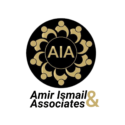USA EB-2 NIW – Understanding the Surge in the Approvals for Green Cards
Introduction
In recent years, the USA EB-2 National Interest Waivers (NIW) have surged in popularity as a pathway for obtaining U.S. Green Cards. This increase is largely driven by rapidly changing labor market demands and evolving immigration policies. This article delves into the reasons behind the rise in NIWs and explains why this trend is likely to continue.
What Is a National Interest Waiver?
A National Interest Waiver is a provision under the EB-2 employment-based immigration category. It allows certain highly skilled professionals to bypass the standard labor certification process if their work is deemed to be of substantial merit and in the national interest of the United States.
USA EB-2 NIW Eligibility Criteria
To qualify for an NIW, applicants typically need to demonstrate:
- Advanced Degree or Exceptional Ability: The applicant must possess an advanced degree or demonstrate exceptional ability in their field.
- National Interest: The applicant’s proposed endeavor must be of substantial merit and national importance.
- Well-Positioned to Advance the Endeavor: The applicant must be well-positioned to advance their proposed endeavor.
- Benefit to the U.S.: The applicant must show that waiving the job offer requirement is in the national interest of the United States.
Why National Interest Waivers Are Becoming More Common
1. Labor Market Demands
As various industries face talent shortages, particularly in STEM fields, healthcare, and advanced manufacturing, the U.S. government is increasingly recognizing the imperative need to attract highly skilled professionals. Talent shortages can stifle innovation, economic growth, and even national security. Consequently, more NIWs are being approved to mitigate these shortages.
2. Evolving Immigration Policies
Changes in immigration policy under recent administrations have also contributed to the rise in NIWs. Policies aimed at making the U.S. a competitive global player in technology, healthcare, and other critical sectors have emphasized the importance of attracting talent through streamlined processes such as NIWs.
3. Global Competitiveness
The global talent competition is fiercer than ever. Countries across the world are vying to attract the best and brightest minds. Recognizing this, the U.S. has bolstered the NIW program to make it an attractive option for highly skilled professionals seeking residency in a country with robust career opportunities.
4. Pandemics and Subsequent Policy Shifts
The COVID-19 pandemic has spotlighted the essential roles carried out by healthcare professionals and researchers. Emergency policies and initiatives to fill critical gaps in the healthcare system have included provisions that make it easier for foreign nationals in these fields to obtain Green Cards through NIWs.
Advantages of National Interest Waivers
- No Job Offer Required: Unlike other employment-based visas, NIWs do not require a job offer, making the application process more straightforward.
- Streamlined Process: The elimination of the labor certification process significantly speeds up the application.
- Flexibility of Employment: Applicants are not tied to a particular employer, giving them the freedom to work in their specialized field without restrictions.
How to Apply for a USA EB-2 National Interest Waiver (NIW)
Application Steps
Applying for an NIW involves several key steps:
- Eligibility Assessment: Ensure you meet the eligibility criteria for the EB-2 category.
- Prepare Documentation: Gather all necessary documents, including letters of recommendation, proof of advanced degree or exceptional ability, and evidence of the national importance of your work.
- File Form I-140: Submit Form I-140 (Immigrant Petition for Alien Workers) to the U.S. Citizenship and Immigration Services (USCIS). Include a detailed cover letter explaining why your case qualifies for a National Interest Waiver.
- Adjustment of Status or Consular Processing: Once the I-140 is approved, apply for adjustment of status if you are in the U.S. or consular processing if you are outside the U.S.
Challenges and Considerations
While the NIW pathway offers several benefits, it is not without its challenges. Applicants must ensure that their case is well-documented and strongly presented. Legal assistance may be beneficial in navigating the complexities of the immigration process.
Conclusion
The increase in National Interest Waivers signals a strategic move by the U.S. to attract and retain top talent in crucial sectors. As labor market needs, immigration policies, and global talent competitiveness continue to evolve, the popularity and approval rates of NIWs are likely to grow. Understanding the nuances of this pathway can position eligible professionals to take advantage of the opportunities it offers.

